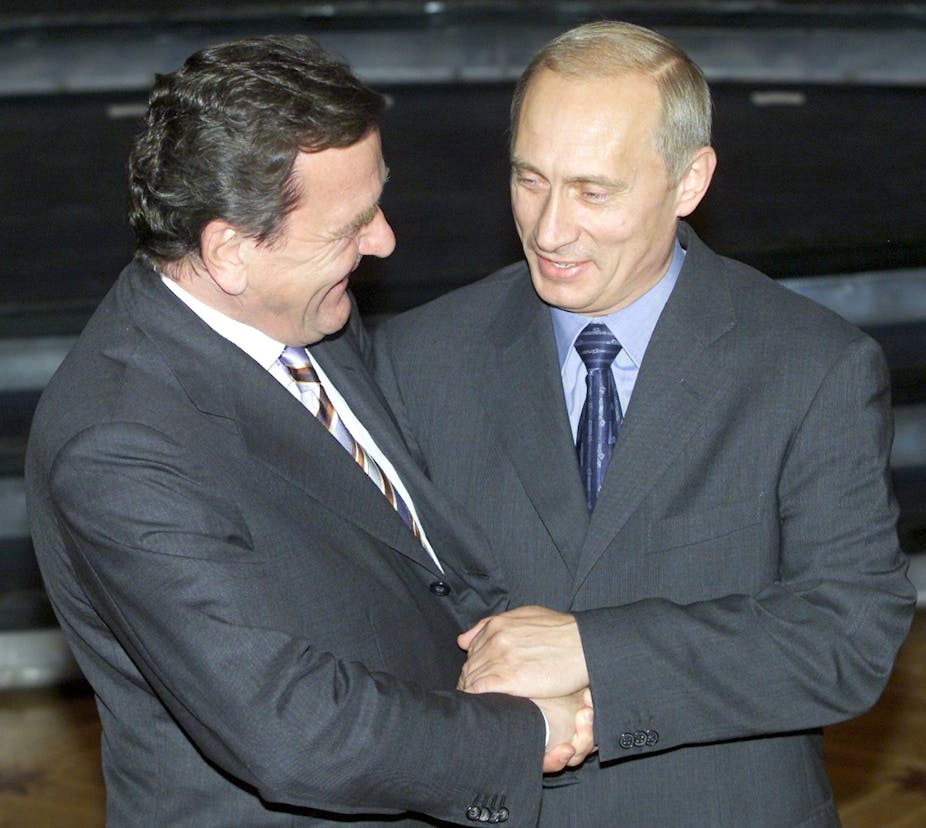Much of the discussion on the current Ukraine crisis concerns European energy security and dependence on Russian gas. The different reactions of EU member states to the Ukraine crisis highlight an underlying issue that influences the security and cost of gas – trust. Without an understanding of trust in commercial and political relations, it is difficult to explain the variation of reactions to the Ukraine crisis and the significance of Russia’s actions on future gas relations.
Trust is the reason why reactions range from building European gas independence from Russia, in the case of the Polish foreign minister Radek Sikorski’s impassioned recommendation, to a more cautious wait-and-see approach from the German foreign minister, Frank-Walter Steinmeier. This is not to say that technical and economic constraints such as pipelines and interdependence don’t matter. European energy trade with Russia begins with shared interests, but trust can enhance or inhibit cooperation.
Trust shapes the preferences for actors to engage in trade in the first place. Trust influences reactions to disputes and supply disruptions like the one that happened in 2005, and it shapes the parameters of energy security policy. Although trust is needed for all trade activity, it is particularly pronounced in energy, and gas above all. The reason for this is threefold: the huge costs of extracting gas, the interdependency they create between the parties involved and the lack of robust international institutions to govern relations.
Two types of trust
Looking across Europe, there is considerable variation of trust levels toward Russia. There are also different types of trust: “particularised trust” and “generalised trust”.
“Particularised trust” means trust between two parties and based on the confidence of their previous experience. For example: “I the German consumer of Russian gas trust Gazprom to make good on its promises, to deliver X amount of gas for the price of Y.” From this perspective, it is not suprising that there should exist a high degree of trust between German customers and Russian suppliers after 40 years of reliable exchange. On the whole, the same principle applies to France and Italy. As a result they have defended Russia’s position in its previous disputes with Ukraine.
The second type, “generalised trust”, applies to relations between most east European states and Russia. It is generalised because it is not based on a direct experience of commercial exchange, but rather on general perceptions of an entire national group. Therefore, despite subsidising our economy with cheap gas for forty years, Russians are perceived as untrustworthy because of the social and political oppression they have historically meted out on the region. From this perspective, market forces such as cost become less relevant.
Crimea’s interest in seceding from Ukraine and Russia’s recent support of this movement harken to memories of Budapest in 1956 or Prague in 1969. This distrust is based less on commercial experiences with Gazprom than political fears of the past, and it is driving states to look for (expensive) alternatives to Russian gas.
Seeking alternatives
Ironically, the states that can least afford to pay for alternatives to Russian gas are the most willing. Poland, backed by the EU, spent €950 million to build a new liquefied natural gas terminal, the Baltic states also want to build them and the EU was planning to back the construction of an €8 billion pipeline to deliver gas from the Caspian Region without any firm supply contracts. LNG, in this case from Qatar, is generally more expensive than pipeline gas because of the additional transportation steps it requires.
It should be noted that distrust in the east is not only directed to Russia. When Nord Stream was first announced, Poland approached the Norwegians to build their own trans-Baltic pipeline bypassing Germany with a direct link to Norwegian supplies. The Polish foreign minister went even so far as to describe Nord Stream as the “Molotov-Ribbentrop pipeline”. These examples illustrate the monetary cost of trust in gas trade. They are an energy security premium that states with low trust in Russia are willing to pay for the same product.
Russia’s recent foray into the Crimea has reinforced fears in the east of Europe, exacerbating distrust among transit countries who have a higher dependence on Russian gas than western Europe. This renders more urgency to their appeals to the EU for developing alternatives to Russian gas. For Western Europe, those states on whom Russia depends the most for revenues from gas sales, it makes their defense of Russia as a reliable trading partner harder to make.
Put together, there is a net loss of trust between Europe and Russia, one that will be more difficult to overcome than the last two supply disruptions. And ironically, the conflict in Ukraine could have the single most detrimental effect on Gazprom’s European business since the first long term contracts were signed in the 1970s – even though no supply disruption may occur. No other example better illustrates the monetary and political costs of trust.

